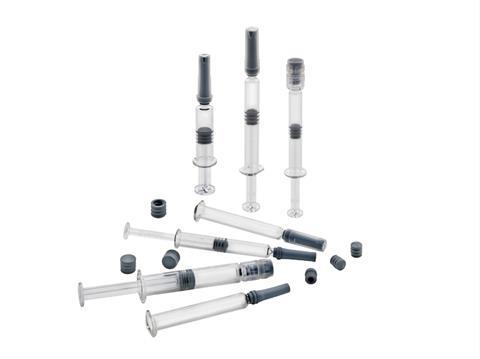
West Pharmaceutical Services (West) has unveiled its West Synchrony Prefillable Syringe (PFS) System at CPHI Worldwide in Frankfurt, Germany, offering a ‘fully verified’ platform from a single supplier.
The company says its West Synchrony PFS system delivers a ‘fully verified’ system-level solution designed specifically for biologics and vaccines, aiming to accelerate syringe selection through its comprehensive performance and regulatory data packages.
According to West, the system has a single design verification and characterization package which ensures the form, fit and function of the entire PFS system. It also has a streamlined submission process with one system-level drug master file and regulatory package tailored for comprehensive regulatory needs.
The system’s single supplier approach offers make-to-stock and make-to- order supply with low minimum order quantities, said to ensure reliability and flexibility. The new system is due to be commercially available in January 2026.
“Drug development companies currently rely on fragmented approaches, assembling component data from multiple suppliers or outsourcing piecemeal verification, which risks delays, increased costs and regulatory setbacks,” said Andy Polywacz, president of Integrated Systems at West. “The West Synchrony prefillable syringe system enables pharmaceutical companies to streamline design, accelerate regulatory submission, and secures a reliable supply chain for combination products that meets quality and volume needs.”
In related news, in January Vetter stated it was developing a new version of its V-OVS syringe closure system for sterile injectables, set to offer tamper-evidence, size variety, a new locking mechanism and updated gripping surfaces for improved opening and handling. Its overall size has been reduced to encompass smaller syringes, and a ‘robust’ locking mechanism is expected to hold the closure in place ‘even during the most challenging clinical use cases’.
Earlier this month, Ypsomed unveiled a pre-filled autoinjector designed for automated disassembly, streamlined recycling, and with a reported 87% reduction in material-related CO2 emissions compared to conventional alternatives. It comprises two mono-material, bio-based subassemblies - one for the syringe unit and another for the drive unit - set to simplify the industrial separation, recovery and recirculation of materials.
If you liked this story, you might also enjoy:
The ultimate guide to the Packaging and Packaging Waste Regulation in 2025
How are the top brands progressing on packaging sustainability?
Everything you need to know about global packaging sustainability regulation in 2025
The key to increasing the use of reusable packaging in supermarkets














No comments yet